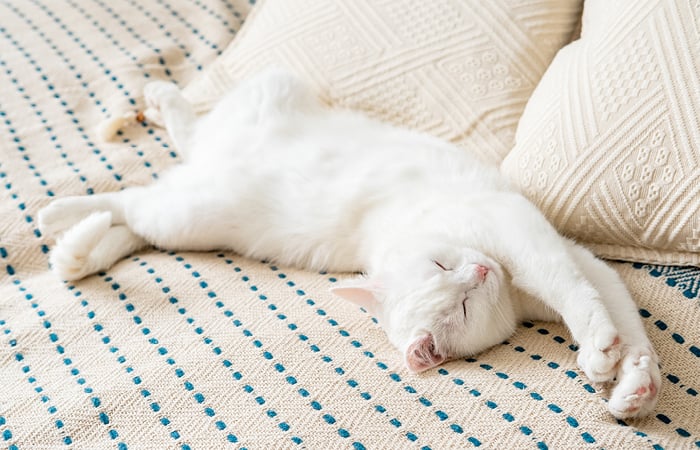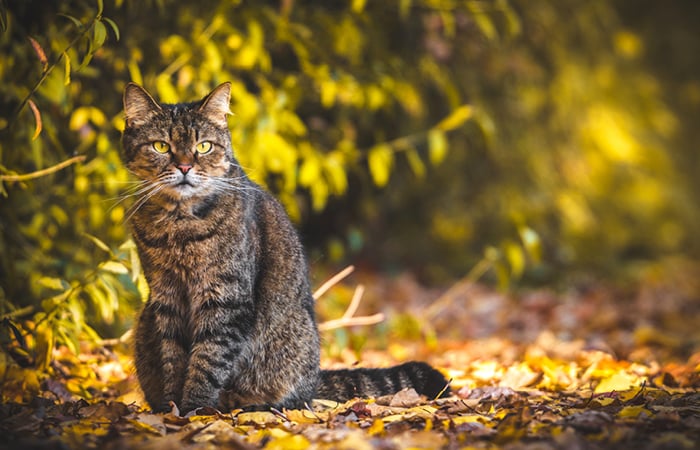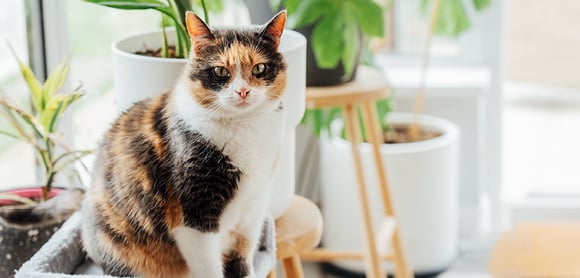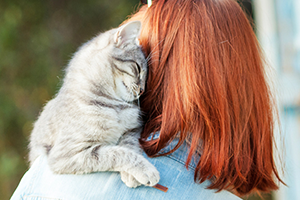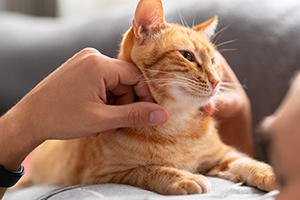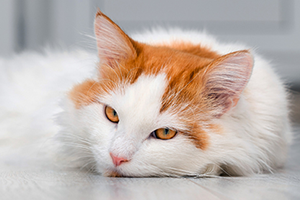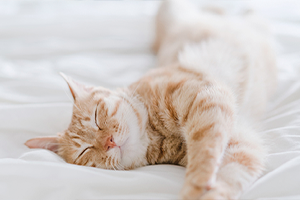Understanding cat emotions
Do cats have emotions?
Research suggests that cats can feel a range of emotions, including:
- Fear
- Anxiety
- Happiness
- Relief
- Frustration
- Depression
Cats can also have an emotional response to pain, although they don’t necessarily understand what may be causing the pain itself. For example, if a cat is in pain from a urinary tract infection, they don’t understand the reason for the pain, and may link it to the location where the pain occurs; for example, their litter tra
It is unlikely that cats feel more complex emotions such as guilt, embarrassment, jealousy or the need to take revenge. While research in feline emotions is starting to gain more interest and it’s possible for new information to change current thinking, we’re not there yet. In terms of emotions like grief, it’s possible that our cats experience this; but again, this needs to be scientifically supported before we can say for sure.
Do cats love their owners?
We certainly love our cats — but can cats feel love in return? We know that cats form emotional attachments with their owners, and it’s likely that this includes the capacity to love us. This still needs to be proven, but in the meantime, observing your cat’s body language is the best way to get an insight into how they might be feeling.
Some signs your cat loves you include:
- Slow blinking
- Head butting
- Kneading
- Chirruping
- Sitting on your lap or close to you
- Tail held high with the end twitching
Evolution and emotions in cats
Do cats understand human emotions?
Cat emotions – from their perspective
So, do cats have feelings? While research clearly shows that cats experience a wide range of emotions, we need to take care not to project human emotions onto them – a habit known as anthropomorphism. Sometimes it can be tempting to do this in an attempt to explain or rationalise our cats’ behaviour. While human analogies can sometimes help us better understand our cats, often it does more harm than good. This is because it can lead us to treat our cats differently, without addressing the underlying cause.
For example, when a cat scratches a new sofa, it might be easy to assume they’re getting revenge because we forgot to feed them last night. But cats simply aren’t capable of this emotion. Instead of punishing their cat by shouting at them, owners need to consider why their cat is behaving this way. Has the furniture been rearranged or updated, and the cat is simply marking their new territory? Or has there been a change in routine that’s left them feeling stressed and unsettled? Often, the way a cat behaves is linked to a change in their environment.
Cats are also masters at hiding pain, so frequently a small behavioural change could be an indicator that something isn’t right with them. In this case, it’s a good idea to see your vet to rule out any underlying medical issues.
Put yourself in your cat’s paws
Petplan is a trading name of Pet Plan Limited (Registered in England No. 1282939) and Allianz Insurance plc (Registered in England No. 84638), Registered office: 57 Ladymead, Guildford, Surrey GU1 1DB.
Pet Plan Limited is authorised and regulated by the Financial Conduct Authority. Financial Services Register No. 311969. Allianz Insurance plc is authorised by the Prudential Regulation Authority and regulated by the Financial Conduct Authority and the Prudential Regulation Authority. Financial Services Register No. 121849. Pet Plan Limited is a subsidiary of Allianz Insurance plc.


